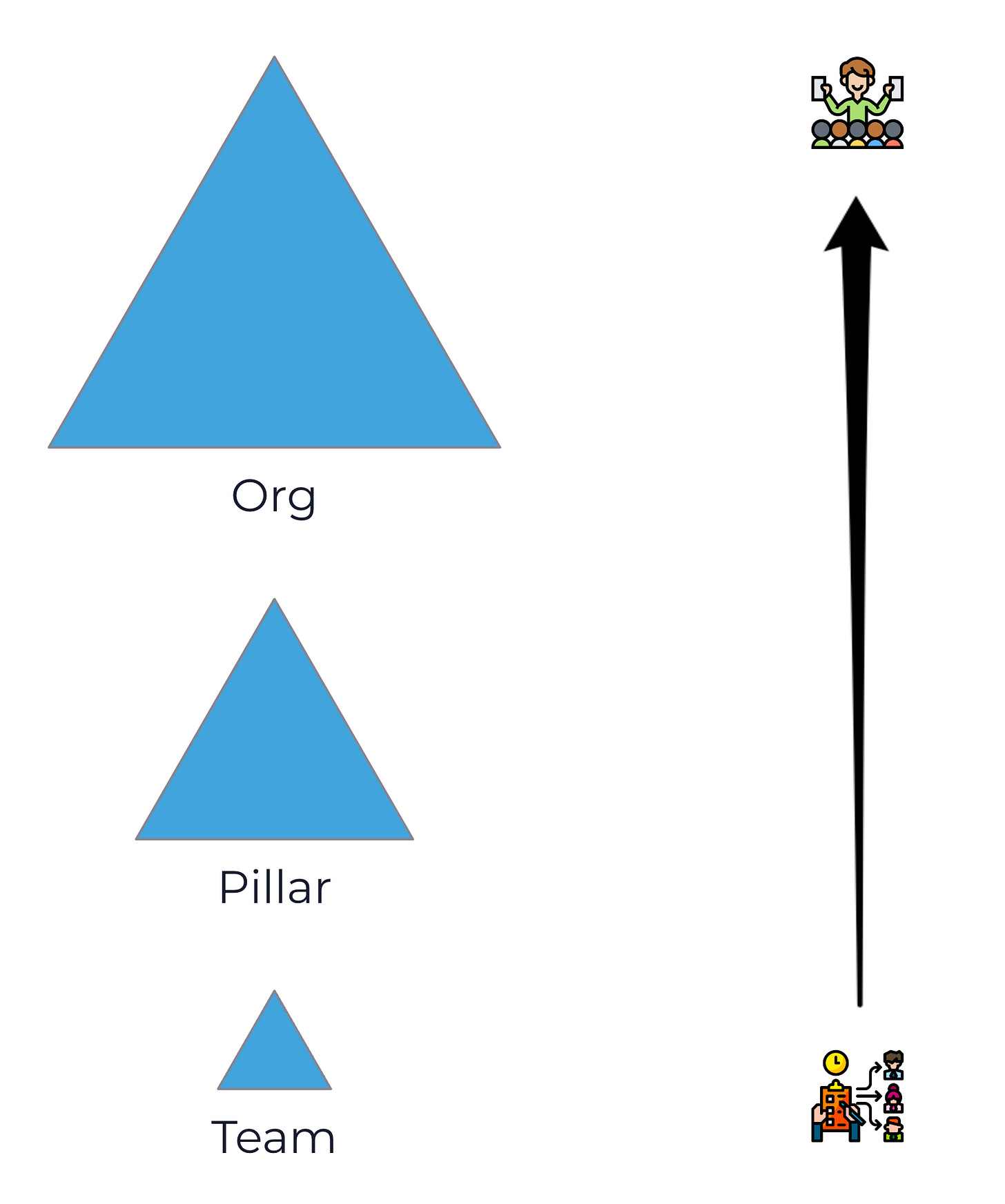Storytelling: The Product Manager's Superpower
Storytelling is the PM and product leader skill you didn't know you need to have. Here's everything you need to know to improve your storytelling and advance faster in your product career.
After sitting on countless promotion committees and leading product organizations for over a decade, we've noticed something striking: the same three reasons keep emerging for why talented PMs don't advance to senior levels:
Not enough impact
Failure to articulate their impact
Peers don't vouch for the impact
At first glance, these might seem like distinct challenges. But there's a fundamental skill that underpins all three - one that separates merely good PMs from truly exceptional product leaders:
Storytelling.
Not just any storytelling, but the art of framing messages to be clear, persuasive, and memorable in ways that drive organizational change. This isn't about spinning tales - it's about architecting narratives that align teams, inspire action, and create lasting impact.
The Reality of Product Leadership
We've watched hundreds of PMs navigate the path to senior leadership.
Here's what we've learned about each of these promotion blockers:
1. Not Enough Impact
"Not enough impact" rarely means the PM isn't working hard or shipping features. More often, it reveals a failure to rally cross-functional teams around meaningful goals that matter to the business.
The most successful product leaders we've seen don't just drive execution - they craft compelling narratives that:
Connect individual efforts to larger business outcomes
Make abstract strategy tangible and actionable
Create a sense of shared purpose that transcends team boundaries
2. Failure to Articulate Impact
One of the most painful patterns we see in promotion committees is the "silent achiever" - PMs who believe their work will speak for itself. It won't.
Senior leaders and promotion committees are drowning in information. They're evaluating dozens of candidates while juggling their own responsibilities. If you can't articulate your impact in a clear, compelling way that sticks in their minds, you're essentially invisible.
The best product leaders we know treat impact articulation as an ongoing practice:
They document wins and learnings in real-time
They frame outcomes in terms of business value, not just feature delivery
They create simple, memorable narratives that others can repeat and champion
3. Peers Don't Vouch for Impact
This is perhaps the most subtle yet crucial factor. In organizations like Google and Facebook, peer feedback can make or break a promotion. But here's what many PMs miss: peers don't just evaluate your work - they need to be able to articulate your impact to others.
If your story of impact isn't clear and compelling enough for peers to internalize and advocate for, you'll find yourself as the lone voice in your promotion discussion. And one voice rarely carries the day.
Mastering the art of storytelling is key to getting to senior levels. But there are other benefits. Let’s talk about them.
Introducing Roshan Gupta
Roshan Gupta was a Group Product Manager at Google for 6.5 years (leading a 300+ person org) and PM at Meta.
After building products for 24 years, now he runs AmplifyPM and has a course on persuasive storytelling.
Why Product Leaders Must Master Storytelling
Having led organizations from small teams to 300+ person divisions, we've seen how storytelling becomes exponentially more critical as scope increases.
Here's why:
Reason 1 - It's How You Wield Organizational Influence
Every PM has seen the classic Venn diagram showing how they sit at the intersection of customer, business, and technology.
But after decades in product leadership, we can tell you the reality looks more like this:
And if we're being honest, at senior levels it actually looks like this:
As a Product Leader, you're navigating a complex landscape of teams, each with their own priorities, languages, and concerns.
The PM has to align all these stakeholders.
The PM has to inspire all these stakeholders.
The PM has to drive meaningful action across all these stakeholders.
But remember - PMs don't lead by authority. We can't directly tell people what to do. We have to convince them.
This is where your power to influence - without formal authority - becomes crucial.
You need to be able to craft the right message, for the right audience, at the right time - and deliver it with confidence.
Storytelling - the ability to frame your message to be persuasive, engaging, and memorable - creates a shared vision that transcends departmental boundaries.
Effective storytelling shifts mindsets and overcomes resistance to new ideas.
Fail to do this, and you fail at your job as PM.
This is why storytelling isn't just a nice-to-have skill; it's the key to wielding influence effectively in environments where you can't simply command action.
Reason 2 - It’s How You Scale
The second reason great storytelling will change your career - it's how you scale.
As a Product Leader, your impact is not measured by how well you manage a handful of people -it’s measured by how you mobilize entire teams, departments, and even organizations.
To put it simply - you can't lead 100 people the same way you lead 10.
When you lead a small team, you can meet with everyone 1:1. You can personally ensure everyone understands the goals and vision.
But as you grow, that no longer works.
When you’re dealing with a larger group, you need a narrative that resonates deeply with people who may never interact with you directly.
At scale, you need people to take initiative and make decisions without waiting for your guidance.
Growing into a Product Leader is about your ability to motivate large groups of people to take action, based solely on the strength of your message.
Reason 3 - It’s How You Create High-Performing Teams
Great storytelling is the catalyst for high-performing teams.
It's the glue that binds people together, the fuel that ignites passion, and the compass that guides everyone towards a shared destination.
When you paint a vivid picture of where you’re headed and why it matters, people feel inspired to act in alignment with that vision.
Effective storytelling can help you foster a culture where people are motivated not because they have to be, but because they want to be.
Teams feel empowered and connected to something bigger than themselves, leading to deeper commitment, higher engagement, and ultimately, greater productivity.
Furthermore, when you tell a compelling, well-crafted story - it’s not just you who carries that message forward - your managers, team leads, and other stakeholders begin to embody and retell that same story.
The power of storytelling lies in its ability to cascade throughout the organization, transforming a single narrative into a shared belief.
When each layer of leadership is equipped with the same story, they reinforce the vision consistently, ensuring alignment up and down the entire team.
Finally - it’s not just your stories that matter. To create high-performing teams, you need to help your team members tell their stories, better.
You need to hone the ability to see the real story behind the story people often struggle to tell.
You need to listen to what your teams are telling you, and reflect it back to them in a structured way that brings clarity to everyone involved.
Coaching your teams on how to reframe their messages to be persuasive and memorable is how you coach your teams to excel.
If you’re convinced that storytelling is a must-learn skill for your Product career, the next question is - how do you tell great stories as a Product Manager?
Today’s Post
Lessons from Hollywood
4-Step Process to Building Stories
How to Build Your Story Map
Where PM and Hollywood Differ:
The Problem With Storytelling Arcs
Most Common Mistakes
Keep reading with a 7-day free trial
Subscribe to Product Growth to keep reading this post and get 7 days of free access to the full post archives.







